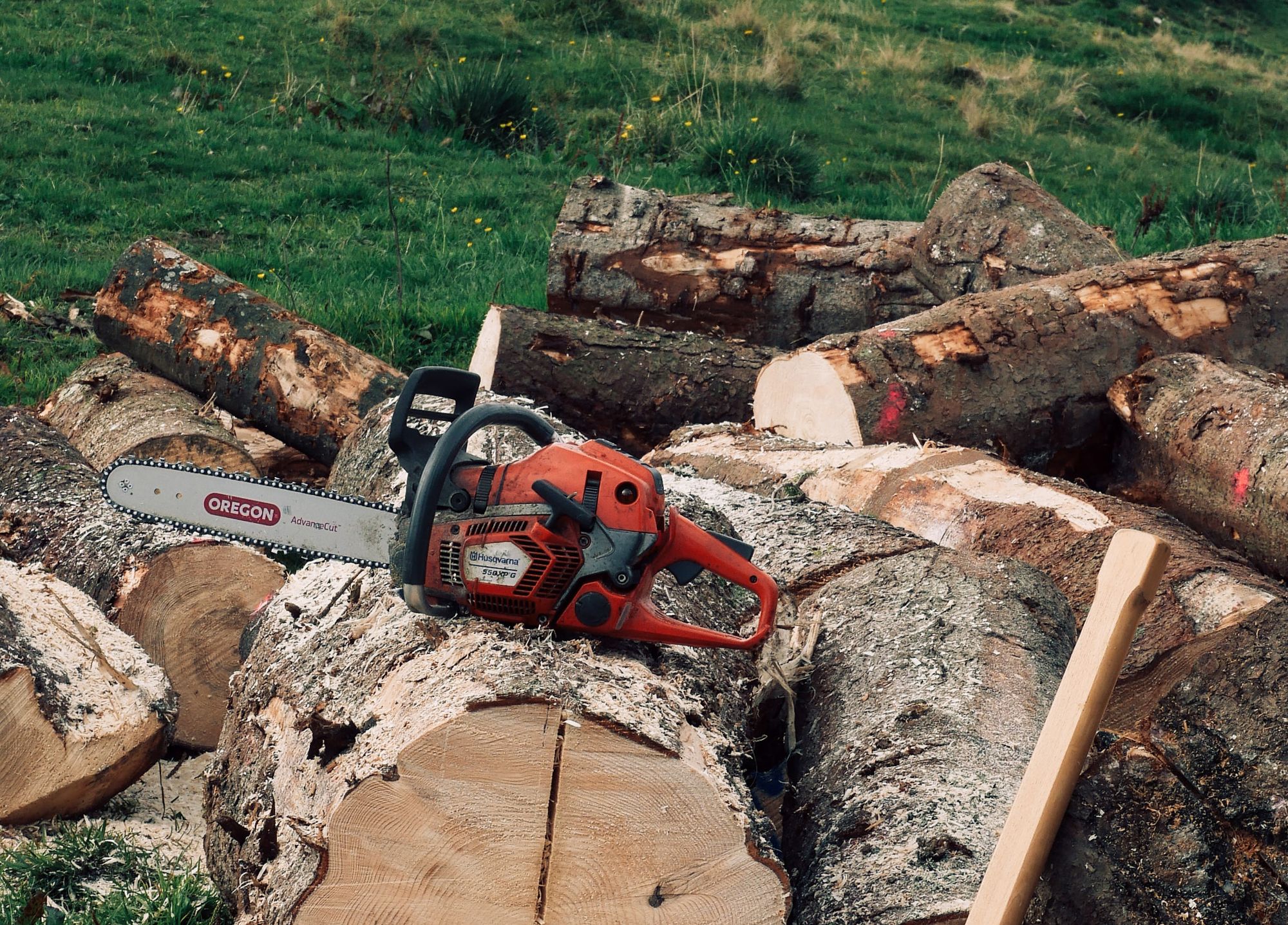Poachers- Crimes Against Nature
"It is mind-numbing when you consider the creative and depraved ways, we humans underappreciate the environment that nurtures and sustains us. Blame it on a lack of education or a lack of conscience, or unmanageable greed, these acts against nature will lead to our ruin in one way or another."

They sneak into forests during the night, armed with chainsaws, motivated by greed and need. They steal what can never be replaced. The Cherokee call trees the Standing People. A Tree symbolizes permanence, longevity and its firm base symbolizes the concept of 'roots' and an ongoing relationship with natural surroundings. Until they are chopped down.
It is a crime we don’t hear much about unless you are in certain circles, but tree poaching is on the rise and it’s bad news for us all.
This underground economy of quick money in tree theft is most often based in rural areas, towns near forests, but worlds away from contemporary economic progress. Out of desperation, the thieves poach and sell. Out of greed, a marketplace makes it pay off. It is classified as a property crime. But it harms more than property. The balance of animals, defenses against climate change, clean air, and our entire ecosystem is forcibly imbalanced for the love of money. We used to joke about burning the furniture to stay warm in hard times, but there’s nothing funny about creating a decline in our environmental health to trade in wood.
Across North America, this category of crime is growing. From British Columbia to the lush forests of Alaska. In Eastern Missouri, walnut and white oak trees have been ravaged at the Mark Twain National Forest. In New England, the cherry tree is targeted. Bonsai in Seattle, palm trees in Los Angeles, to the stoic redwoods of northern California---some of the oldest and tallest trees in the world. Pine in Wisconsin and in Texas a cactus that only grows in Texas and Northern Mexico. The thorn-less living Rock Cactus of Big Bend National Park is being stolen to nourish an illegal cactus market.
Following years of investigation, four cactus traffickers were sentenced for their roles in the illegal harvest, sale, and/or transportation of the protected living rock. These thefts are far-reaching because they change things.
An agent of the U.S. Fish and Wildlife Service was quoted as saying, “Never in a million years did I expect to investigate cactus smuggling as a federal officer. Once I started working the case though, I found it both very interesting and absolutely shocking: reading the correspondences between supplier and buyer and learning how insatiable their desire is to get these plants. They will do whatever they can and pay whatever they can. And they don’t just want one cactus. They want as many as they can get.”
Tree thefts have also revealed a different side of our friendly park rangers. Armed with AR-15’s a poacher in Orick, California was captured, arrested and charged by rangers in the northern California town.
And the long-term changes these thieves cause is irreversible, according to experts with U.S. Department of Agriculture. A tree has the ability to provide oxygen, and the power to remove harmful gases like carbon dioxide.
Through a process called photosynthesis, leaves pull in carbon dioxide and water and use the energy of the sun to convert this into chemical compounds such as sugars that feed the tree. But as a by-product of that chemical reaction oxygen is produced and released by the tree. The belief is that one large tree can provide a day’s supply of oxygen for up to four people.
Trees store carbon dioxide in their fibers which helps them to clean the air and reduce the negative effects of it. According to the Arbor Day Foundation, in one year a mature tree will absorb more than 48 pounds of carbon dioxide from the atmosphere and release oxygen in exchange. This is the reason these incredible beings are called the Earth’s lungs.
Redwood trees form big bumps or burls when they experience distress from a fungus or lightning. The burl industry is lucrative. Poachers go after burlwood because it’s a hot commodity for sculpture, furniture, and other wood items. Think of all the things we treasure that are made of wood, from violins and guitars to that large kitchen island you had to have, and you can imagine the depth of an underground economy for stolen trees. Estimated at $1 billion annually in North America, National Geographic Explorer and writer, Lyndsie Bourgon believes the global illegal market can be estimated at $157 billion a year.
The good news is arrests are increasing and believe it or not, the trees are helping in the cases. In Washington state, poachers were convicted using DNA evidence. A research geneticist for the U.S. Agriculture Department’s Forest Service testified at trial and confirmed that stolen wood was a genetic match to the remains of three poached maple trees.
It is mind-numbing when you consider the creative and depraved ways, we humans underappreciate the environment that nurtures and sustains us. Blame it on a lack of education or a lack of conscience, or unmanageable greed, these acts against nature will lead to our ruin in one way or another.
Decades ago, I had a religious experience standing in the middle of redwood trees so tall they blocked the sky. I felt like an ant on an elephant’s ass---but somehow significant and in partnership with the trees. There is a quiet hush in their presence. How could anyone take a chainsaw to them?
Our appreciation of the ecosystem is not some hippie rush, it’s time-tested wisdom.
Native Texan English professor and author Tom Pilkington pays tribute to the trees in his poem, This Texas:
It’s quite a place, this Texas
Its hills, its prairies, its mountains high
It’s valleys lush, its rivers and streams
That sparkle in the light
Its bois d’arc, hickory and red oaks all
And the cedars in the west stand tall
But the pine trees of East Texas
Stand tallest of them all
Sunrise over Lake Rayburn
Is a pleasant sight to see
While a beaver works his tedious task
A golden hawk soars high and free
From Longview, Lufkin, Lubbock and Wells
To Dallas, Houston and Spring
From north to south
East and west
Its praises Texans sing
One seems to stand a little taller
Heart near bursting with pride
While standing on Galveston’s great seawall
Just watching the changing tide
The lone star shines its brilliant light
From desert to the sea
It’s quite a place, This Texas
Quite a place indeed
